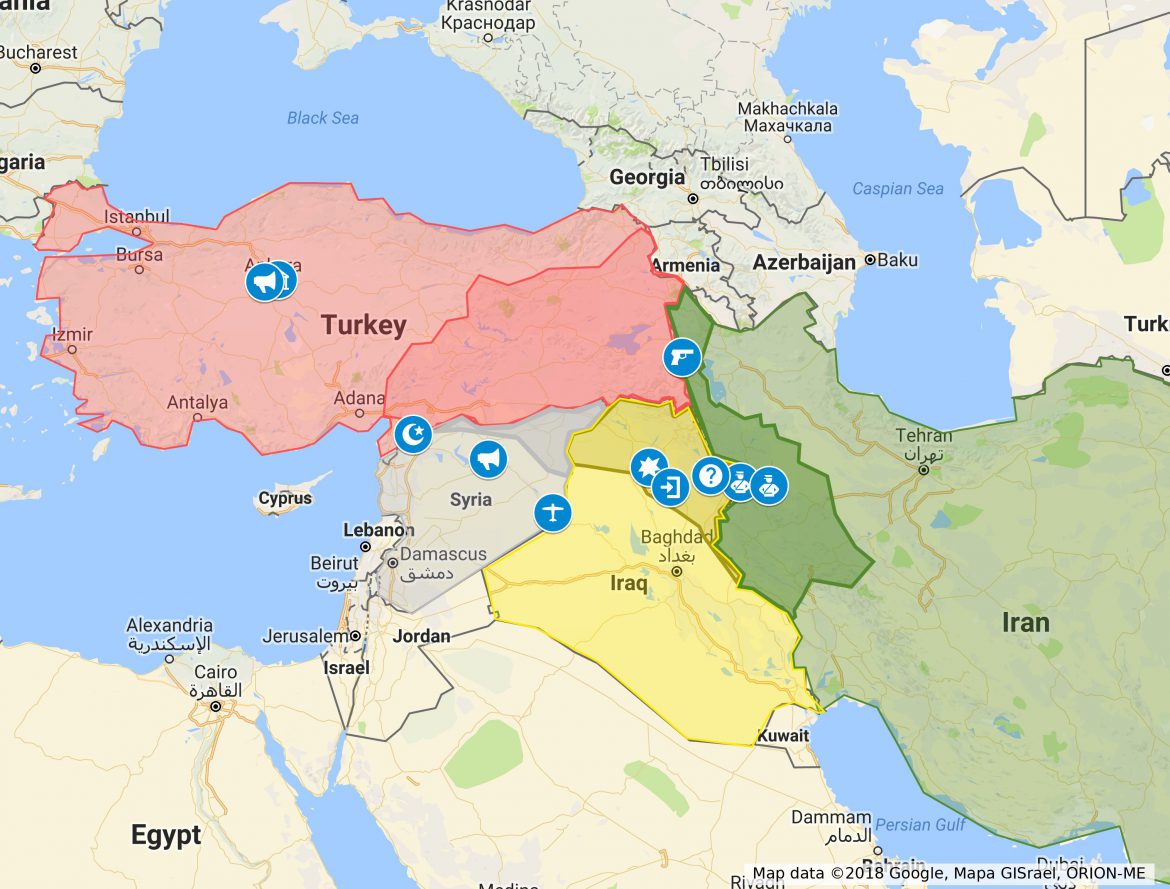1.7K
Iran
- A Kurdish professor (Caucher Birkar) of Cambridge University won the Fields Medal for Maths. The prize is awarded every four years and considered as a Nobel Prize for Math. Prof Caucher Birkar was a refugee who resided in the United Kingdom two decades ago. He is originally from Marriwan city in the Kurdish region of Iran.
- In continuation of crackdowns on Kurdish towns, the security forces of the Iranian regime detained 27 Kurdish men in villages near Marriwan city without any charges. The Kurdistan Human Rights Association reported that the men were taken to undisclosed locations without any information given to their families. Meanwhile, Iranian border guards shot a Kurdish border porter known as Kolbar near the Iranian-Turkish border near Salmasa city.
- Hussein Ahmadi Niyaz, the lawyer for Ramin Hussein Panahi, a Kurd on death row, was arrested on the orders of the Iranian court in Sanandaj on Sunday when he went to inquire about his client. Niyaz also represents Shin Abad burn victims school girls and political prisoners Osman Mustafa Pour and Hedayat Abdollah Pour, a Kurdish prisoner also on death row. Niyaz was released on bail but was arrested for failing to answer the summons of the court to defend accusations of doing interviews with foreign media outlets.
Iraq
- Qubad Talabani, the deputy Prime Minister of the Kurdistan Regional Government (KRG) announced, to the frustration of other parties, that the KRG will postpone the elections set for September 30. The spokesperson for the Kurdistan Democratic Party (KDP) Mahmood Muhammad, said, “We would like to clearly announce that the KDP is not for postponing the elections at all.” According to the PUK’s media office, Brett McGurk, Special Presidential Envoy for the Global Coalition to Defeat the Islamic State, urged a postponement. On August 7, during a press conference, KRG Prime Minister Nechirvan Barzani denied reports of U.S. envoy request to postpone the elections.
- Saddam-era Arabization in Kirkuk continues as Kurds are sued by Iraqis of the center and south of the country who were given deeds to property under Saddam and have come back to claim it with the support of Rakan Said, the Baghdad-appointed governor of Kirkuk. After the toppling of Saddam Hussein, the lands were given back to their Kurdish and Turkmen owners when Arabs left voluntarily in return for a sum of money as per the Iraqi Constitution.
- ISIS attacked Iraqi federal forces outside Erbil on Monday, near Makhmour. IS retains a presence in the surrounding villages, and it is not the first time it has clashed with Iraqi forces. A number of ISIS militants were killed but the Iraqi forces casualties are unreported. The U.S.-led coalition with Iraqi forces and the Peshmerga recently launched a joint military operation against ISIS in the region.
Syria
- US-led coalition airstrikes continue to strike the last pocket of ISIS resistance east of the Euphrates River in the vicinity of the town of Hajin. According to a press release by the US Department of Defense between July 30th and August 5th, coalition forces launched 20 airstrikes to support the Syrian Democratic Forces (SDF) in its campaign to remove jihadi elements on the ground.
- The SDF released a statement condemning the ISIS attacks in the region of As-Suwayda, and espousing their support for any campaign to liberate the numerous abductees taken by the terror group. This comes at a time of reconciliation between the SDF and the Damascus-based government, which both see common cause in removing ISIS in the south and Turkish-backed jihadists in the north. Participation in the Suwayda campaign would be contingent on an agreement from the government and its army, as the desert region is an Islamist enclave within government territory, west of the Euphrates River.
- In Afrin, the Turkish-backed Jihadi groups have been forcing members of the Yazidi ethno-religious minority to convert to Islam. The Yazidi faith is monotheistic and draws heavily from ancient Zoroastrianism, a pre-Islamic Iranian religion. Yazidi citizens in Afrin report that their children are being forcibly sent to mosques for religious education, and those who protest or refuse are subject to torture and detention. The minority group was protected while Afrin was still controlled by the Kurdish-led SDF, however, since the Turkish invasion at the beginning of 2018, Yazidis and other minorities have feared for their safety.
Turkey
- In an ominous threat made during the Justice and Development Party’s (AKP) 5th Women’s Congress, President Recep Erdogan said those who supported the pro-Kurdish People’s Democratic Party (HDP) in recent elections will be held accountable for their actions. The president stated that his government knows exactly who to “strike with an iron fist enveloped in a velvet glove”. Erdogan has accused the HDP repeatedly of supporting the militant Kurdistan Workers Party (PKK). This comes as part of a larger crackdown, especially following the party’s success in the 2018 elections, becoming the third largest party in the national assembly. Despite their size and legitimate entrance into the political sphere, the HDP has lamented that 10,000 supporters remain detained or imprisoned, equivalent to almost a quarter of the party’s membership, along with over a hundred local mayors, and 9 parliamentary deputies.
- The HDP was the only major party in the Turkish national assembly to refuse to condemn US sanctions on top Turkish officials. The ruling AKP and their coalition allies, the Nationalist Movement (MHP), the main opposition People’s Republican Party (CHP) as well as the socially conservative Iyi Party all issued a statement denouncing the decision. The US cited the Turkish government’s refusal to release evangelical American pastor Andrew Brunson who had been imprisoned since 2016 as reason enough for the sanctions. Erdogan’s government has accused him of undermining the state by somehow working for the Gulenist Islamic religious movement, the left-wing PKK, and the US espionage services.

